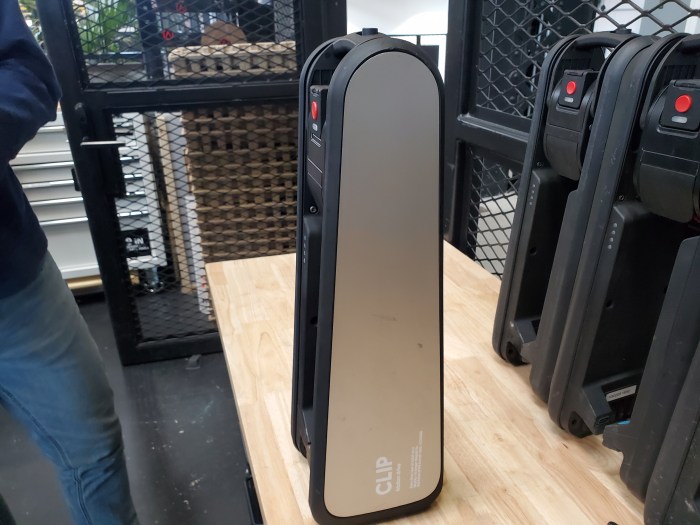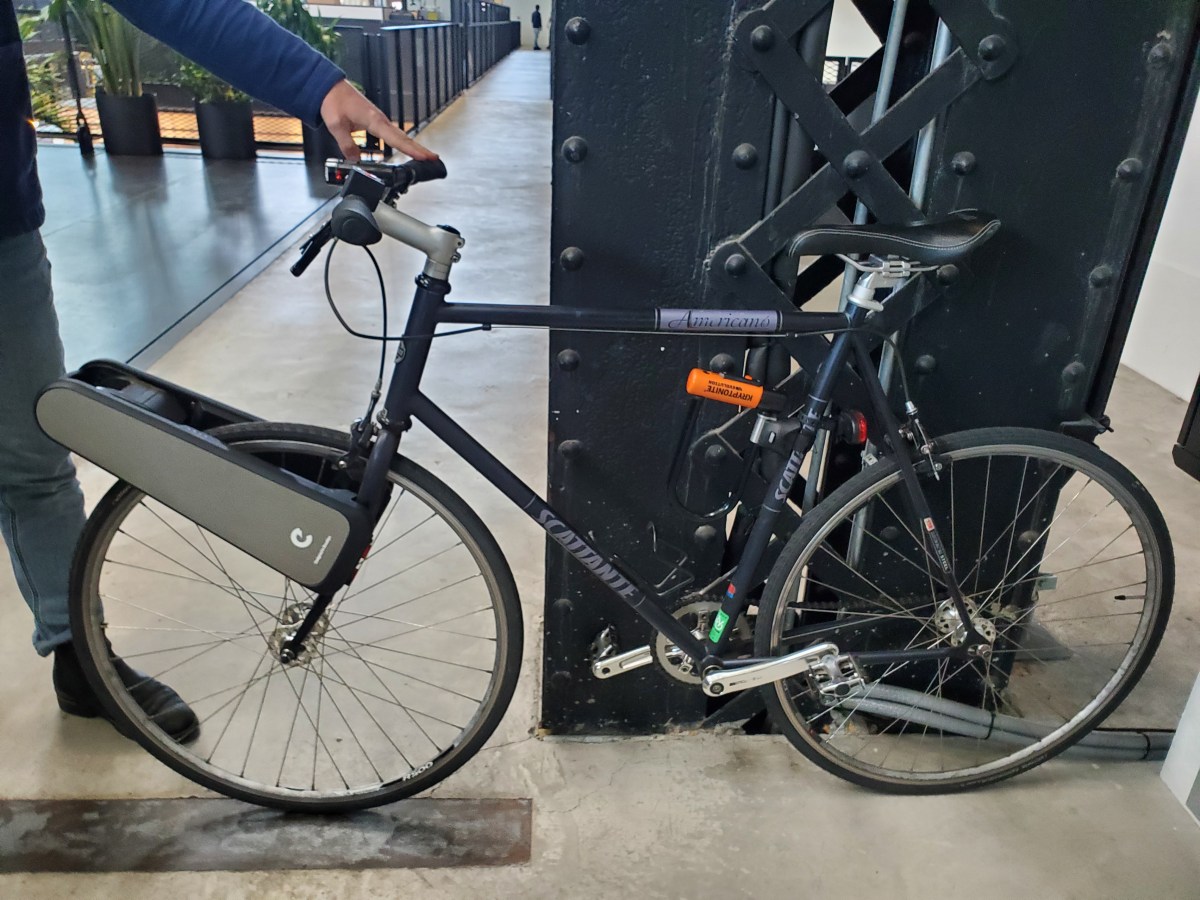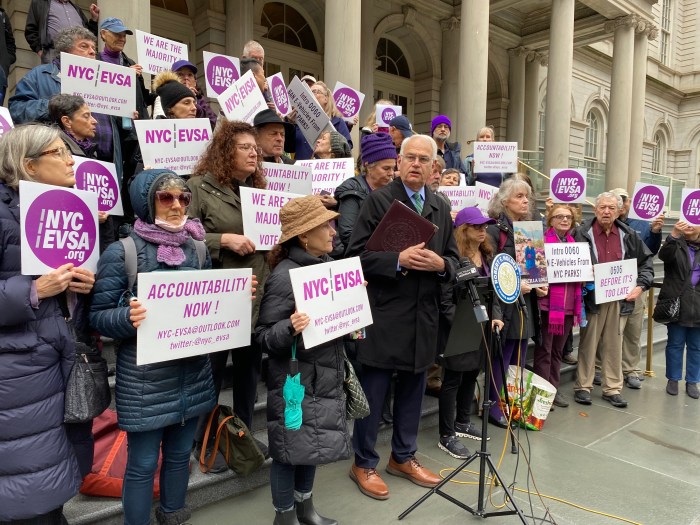A Brooklyn-based startup wants to transform urban commuting by turning any regular bike into an e-bike.
Clip, founded in 2018 and based at the Brooklyn Navy Yard, has produced a portable electric motor that can easily be attached to any traditional bike and quickly turn it into an e-bike. amNewYork Metro visited company headquarters this month to test out the tech.
The device, which looks like a giant hair straightener, weighs 7 pounds and contains a 450-watt friction motor capable of propelling a bike forward at a speed of about 15 miles per hour, enough to comfortably get a rider up some of New York City’s toughest hills.
The company’s flagship device costs $499, not cheap but far less than the market for a traditional e-bike. It’s also currently prototyping a $100 version that bolts onto the bike and has a swappable battery, with plans soon to test them in India.
“An alternative to a $2,000 e-bike is possible,” said Clement de Alcala, one of the company’s co-founders who serves as Chief Operating Officer. “For us, it’s just like, e-bikes are great, e-bike tech is great, they reduce emissions, but it’s too expensive for most of us. So let’s try to find an alternative to this.”

Once the device is attached to the bike’s front forks, riders can get a boost simply by pressing a red button on a separate “remote” attached to their handlebar.
The Clip has a maximum range of about 15 miles per charge, but the battery regenerates some power when the rider pumps the brakes, and charging at home takes only about 60 minutes, said de Alcala. Unlike traditional e-bikes, de Alcala says the Clip is designed for the typical length of a commute.
“Our design is totally different from the design of an e-bike,” said de Alcala, a native of the south of France who founded the company in Brooklyn with Indian native Som Ray. “They look at speed and very long range, which for us doesn’t make total sense, because most of our commutes are less than 10 miles, so you don’t really need a 70-mile battery pack to propel your bike to do this 10-mile commute in a city.”
The “totally different” design should also assuage consumers’ concerns about fires, a constant refrain in policymaking circles over the past year, the company says.

Out-of-control fires caused by e-bikes’ lithium-ion batteries killed 18 people last year, a threefold jump from just the year before, according to data from the FDNY. Injuries have jumped from 13 in 2019 to 150 last year, and an FDNY spokesperson said 30 people have already been injured and one has been killed in battery fires so far in 2024.
The Adams administration has an expressed interest in fostering the electric micromobility sector, which if adopted more widely could help reduce punishing traffic congestion and reduce the city’s carbon footprint.
But the City Council and executive branch have taken a number of steps in the past year to regulate e-micromobility to lessen the risk of fires: the city has banned the sale of lithium-ion batteries not meeting Underwriters Laboratories (UL) standards and this year established a program allowing delivery drivers to swap out their unsafe batteries for certified ones.
Meanwhile, some lawmakers have pushed to require e-bike users be licensed, garnering pushback from the cycling community.
Unlike an e-bike, the Clip’s battery is very small, says de Alcala, “the equivalent of your laptop battery” and so safe it can be taken on an airplane. The battery cells used in the Clip are all UL-certified, he noted, though the entire device itself is still undergoing UL certification.
“We’ve done extensive testing on it, we’re providing a specific Clip charger for the battery that users should only use the designated charger for the device, and each individual cell is UL listed to the 1642,” said David Krawczyk, Clip’s product lead. “So now what we’re doing is saying that this entire product is safe, so that’s the certification that we’re going through as we speak.”
The company recently raised $2.8 million in seed capital and plans to scale up its production to about 1,000 units per month by June, de Alcala says. Clip is currently forging relationships with bike stores to potentially be available via retail, but for now, consumers can buy one online.
“You really have to see this to believe. It’s unique,” said de Alcala. “There is nothing else in the world that is plug-and-play.”
Read more: Transit Union Chief Faces Assault Allegations in Lawsuit




































